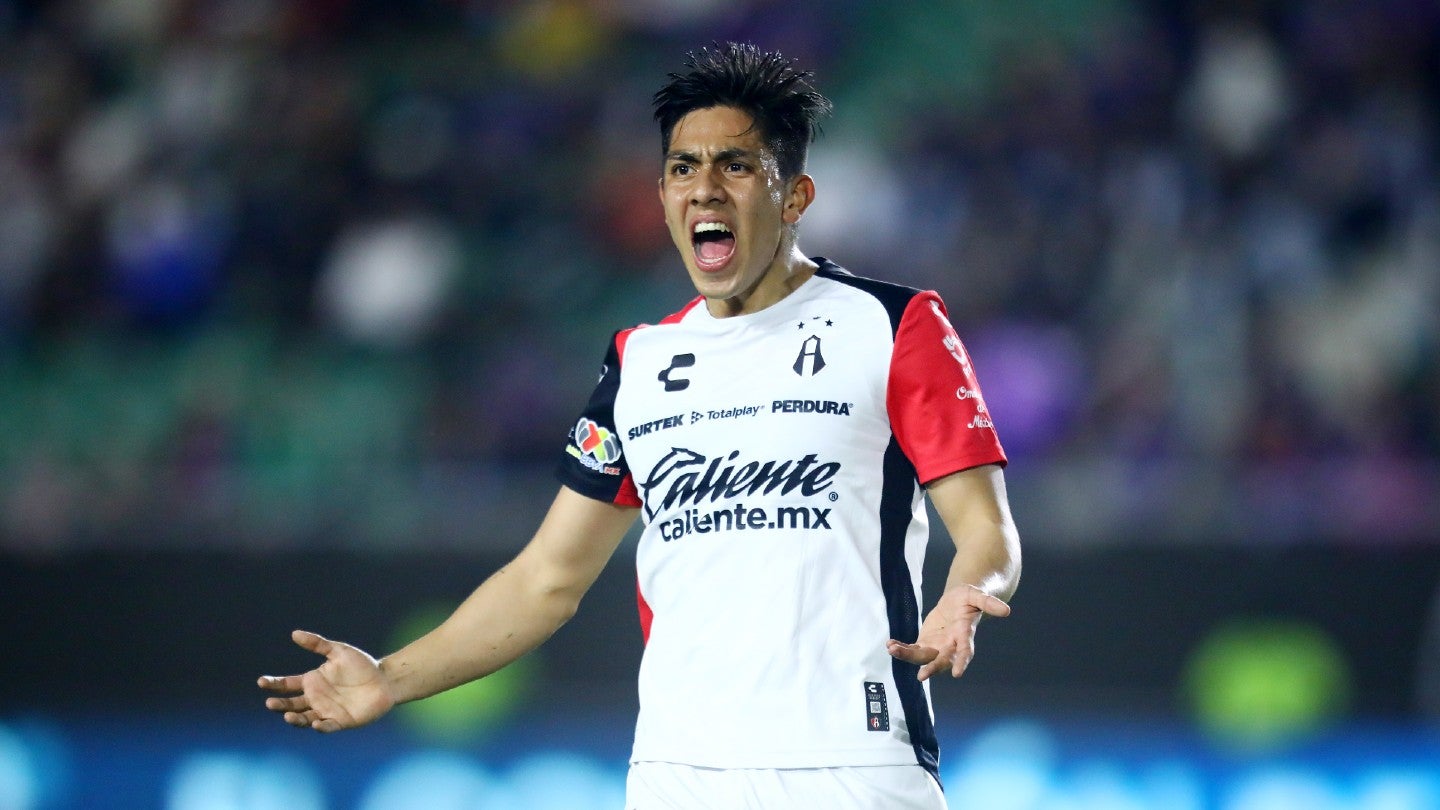
Mexican soccer side Atlas FC have been put up for sale by their owner, Grupo Orlegi, as the country’s top-flight Liga MX looks to crack down on the issue of multi-club group ownership.
Orlegi, which acquired Atlas in 2019, is reportedly seeking $400 million, and has tapped Moelis & Company, ADS, and Weil, Gotshal & Manges LLP to lead the sales process.

Discover B2B Marketing That Performs
Combine business intelligence and editorial excellence to reach engaged professionals across 36 leading media platforms.
Atlas boasts one of the biggest stadiums in Mexico, the 53,937-capacity Estadio Jalisco, and in 2021 ended a 70-year trophy drought with the capture of that year’s Apertura championship, followed by the 2022 Clausura and the 2021-22 Champion of Champions trophy. However, in both the Apertura and Clausura sections of last season's Liga MX, the club finished in 17th position – out of 18.
The club’s broadcast partner is streaming service Vix, which is owned by Mexican giant TelevisaUnivision, and its front-of-shirt sponsor, sports betting firm Caliente.MX, is one of the more lucrative such partners in the league, although the club still lags far behind commercial giants such as Club America, and Monterrey.
As Liga MX teams negotiate home game broadcast rights individually, the strength of that partnership will be key to the club securing a high valuation.
In terms of the Concacaf (North and Central America) region, a $400 million price tag for the club places it below most – if not all – Major League soccer franchises, but that value is nonetheless high for a team that is not in regular contention for a league title, nor in consistent continental competition.

US Tariffs are shifting - will you react or anticipate?
Don’t let policy changes catch you off guard. Stay proactive with real-time data and expert analysis.
By GlobalDataThere have not yet been any formal bids reported, but reports expect the sale to close within six months, which is not impossible.
In selling Atlas, Orlegi, which also owns Liga MX side Santos Laguna, will end its term as one of Liga MX’s multi-club groups.
The practice of operating two teams in the same division is outlawed by both UEFA and the Mexican soccer federation, but it has not been thoroughly enforced – up to this point.
Earlier in July, Grupo Caliente also ended its multi-club operations with the sale of Queretaro FC to US investment firm Innovatio Capital.
Innovatio purchased the club, which finished above Atlas in the 2024-25 Clausura stage, for $120 million, making Queretaro the first Liga MX side with a US majority owner, albeit likely not the last.
There still remain two other multi-club groups in Liga MX – Pachuca and Leon owner Grupo Pachuca, and TV Azteca, the owner of Puebla and Mazatlan.
Recently, Leon were prevented from competing in the inaugural FIFA Club World Cup due to Pachuca also being a participant in the competition, drawing scrutiny on the practice in Mexico that has likely led to the quick-fire sale of Queretaro and the looming sale of Atlas.
Grupo Pachuca, in its original appeal, had said that it was prepared to sell Leon in order to reach compliance, possibly preempting another major club sale in Liga MX.
All this comes at a time when Liga MX is also embroiled in a major dispute over its promotion and relegation practices.
Earlier in 2025, eleven sides from Mexico’s second-tier Liga MX Expansion filed a claim with the Swiss-based Court of Arbitration for Sport (CAS) against the 18 representatives of the top-flight Liga MX, as well as the Mexican Football Federation (FMF) governing body, demanding promotion and relegation between the two divisions be resumed during the 2025-26 campaign.
Traditionally, only one team has been relegated and one team promoted between the tiers, but that was suspended at the onset of the Covid-19 pandemic for a six-season period in order to insulate the clubs from the financial impacts of lost revenue during the enforced lockdown.
The 18 Liga MX sides have requested that the move be made permanent, turning the competition into a closed league similar to the US’ Major League Soccer, and barring promotion from any lower league sides.
The prevalence of multi-club groups in Mexican soccer is a significant factor in that case, with the prospect of a closed league potentially pushing acquisition values even higher, as it provides added revenue security to member clubs.
Speaking to Sportcal (GlobalData Sport) on the prospective sale of Atlas FC, Eduardo Carlezzo, founding partner of law firm Carlezzo Advogados (which has been selected to represent the Liga Expansion sides), commented: "We have requested that CAS act and determine that all clubs must comply with the multi-club ownership rules by the beginning of the 2026/27 season. Those not complying should be relegated."
Carlezzo also commented additionally on the prospect of Liga MX becoming a closed league, continuing: “We appealed to CAS not only for the return of promotion and relegation, but also to prevent what we see as one of the greatest manoeuvres in football history: the independence of Liga MX from FMF and the subsequent definitive closure of the league to relegation.
“This is totally unacceptable and will destroy Mexican football, killing dozens of clubs for the benefit of a few.
“The Mexican football structure is not the same as the American one. The American system is unique: when MLS was established, it was organised as a closed league from day one, following several examples of other US leagues. On the other hand, the Mexican football system was created based on promotion and relegation between competitions, as happens in South America or Europe.
“CAS has already ruled that, since MLS was created based on a closed system, FIFA's rules regarding promotion and relegation do not apply. Conversely, no other league in the world that was created with promotion and relegation in mind could overturn this system and close it definitively. This is a clear message to Mexico.”





